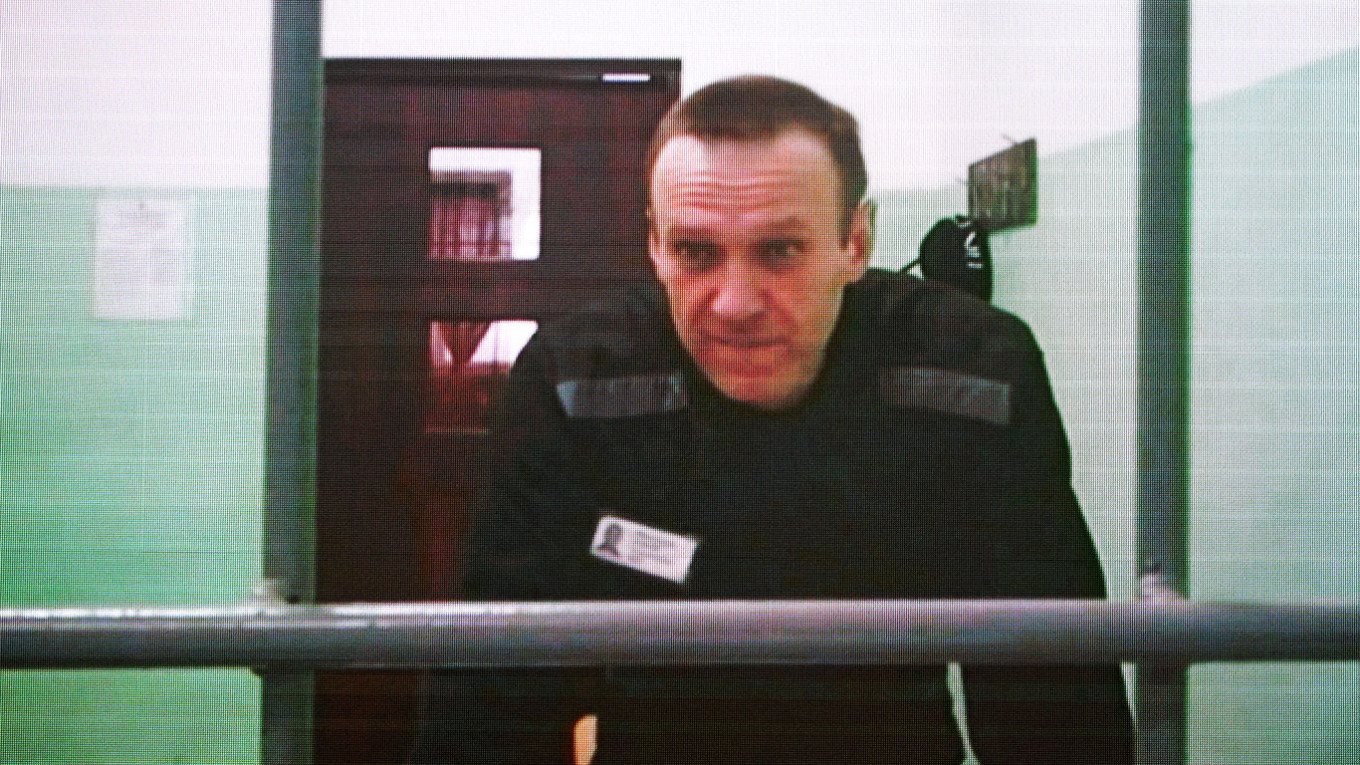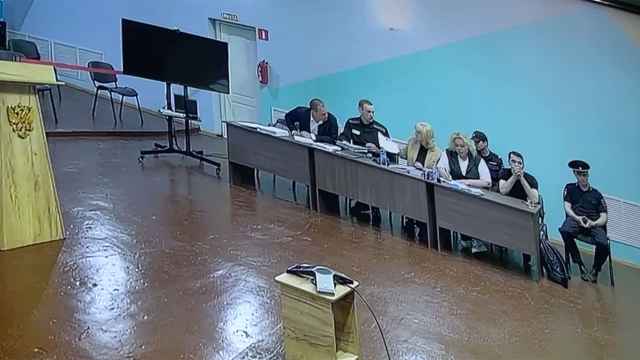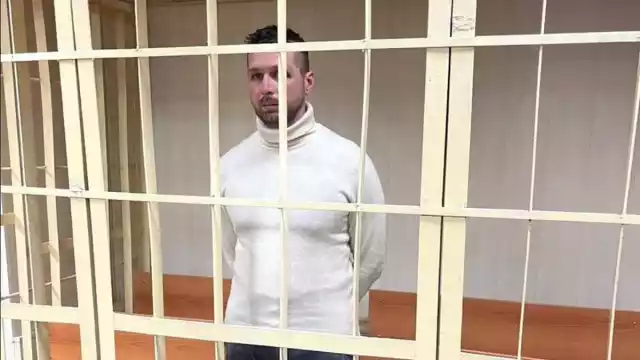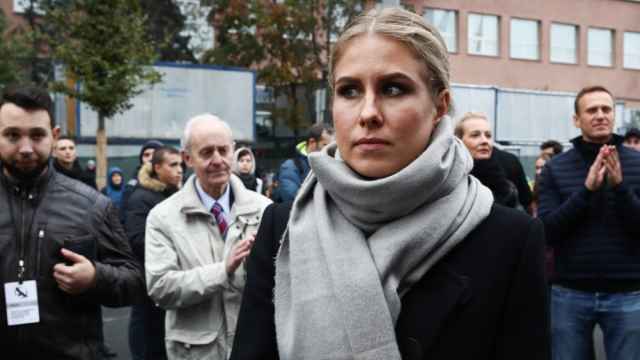A Moscow court has sentenced jailed Kremlin critic Alexei Navalny to 19 years in prison, Interfax reported Friday, on a string of new “extremism” charges that his supporters have called an attempt to keep him out of politics forever.
President Vladimir Putin’s most vocal domestic opponent, who is already serving a nine-year prison sentence on fraud charges that he denies, was charged with crimes including the financing of extremist activity, publicly inciting extremist activities and "rehabilitating Nazi ideology."
The Moscow City Court found him guilty of three of these charges — financing extremism, forming an extremist community and inciting extremism — following a behind-closed-doors trial held at Navalny’s prison colony east of Moscow.
He will spend the 19-year sentence at a restrictive “special-regime” prison.
It was not immediately clear when the sentence will start.
Prosecutors had requested a 20-year sentence for Navalny.
The sentencing comes a year and a half into Russia’s wartime crackdown on the country’s anti-Kremlin opposition, with nearly all prominent critics now jailed or in exile.
In a social media post published Thursday, Navalny, 47, said he expected to be handed a long, “Stalinist” sentence and called on his supporters to fight against “the corruption of Putin and his officials.”
Commenting his verdict, Navalny said he understood “very well” that he was effectively “serving a life sentence” like many political prisoners in Russia.
“The verdict number is not for me. It is for you. They want to frighten you, not me, and deprive you of the will to resist,” Navalny said in a post published on his Telegram channel. “Putin should not achieve his goal. Don't lose the will to resist.”
Also at Friday’s court session, Daniel Kholodny, who previously worked on Navalny’s YouTube channel, was sentenced to eight years in prison on “extremism” charges.
Navalny’s associates told The Moscow Times that they see his prison term as punishment for his political activism and vowed to continue to work on his behalf from abroad.
"We have learned to work even in the absence of Alexei. We have an increasingly developing structure, undertaking more tasks, setting new goals, and making plans for the future," Navalny ally Dmitry Nizovtsev told The Moscow Times.
Yet his allies and experts say Navalny will be even more cut off from the outside world in the “special-regime” prison.
"The goal is to ultimately silence him — to erase his voice, to prevent his presence on social media even through his lawyers, so he would dismantle his team and not appear on international media, and erase his role as Vladimir Putin's opposition," said Kirill Martynov, the editor-in-chief of the Latvia-based independent news website Novaya Gazeta Europe.
"In my view, the current verdict is largely aimed at achieving this," Martynov told The Moscow Times, referring to the special-regime prison. “It is clear that the number of contacts with the outside world will be even less, and the Russian authorities hope that Navalny's voice will simply not exist in the public space.”
Over the past decade, Navalny built a huge following with investigations exposing alleged corruption within the Russian elite and mobilized massive protests across the country.
Since being imprisoned in early 2021 he has continued to speak out against the Kremlin and has opposed its military offensive on Ukraine.
Navalny spent his last days before the verdict in a punishment cell, where he is regularly sent over minor infringements of prison rules, his spokesperson said.
In total, he has spent almost 200 days in the cell, according to his team, which has denounced harassment from prison authorities.
Navalny said prison officials forced him to share a cell with a sickly inmate and subjected him and other prisoners to "torture by Putin," making them listen to the Russian president's speeches.
He has also complained of health problems and experienced significant weight loss since being placed in a strict-regime penal colony.
Since moving abroad, Navalny’s organization has faced a number of challenges, including the scandalous resignation of his close ally Leonid Volkov from the board of Navalny’s Anti-Corruption Foundation and disagreements with other Russian opposition groups.
To highlight the harsh repressions against the Russian opposition and protest the Kremlin's invasion of Ukraine, his allies announced a worldwide protest, titled “Putin Is a Killer,” later this month, on the anniversary of the August 2020 nerve-agent poisoning that nearly killed him. Navalny blames the attack on Putin, which the Kremlin has repeatedly denied.
Navalny’s team also asked supporters to travel to the maximum-security prison — the IK-6 penal colony some 250 kilometers east of Moscow — where the trial was held.
According to journalists on the scene, several teams of reporters had set up in front of the prison, but there was only one supporter in sight.
Navalny’s parents told the independent news outlet Mediazona that they had tried to attend the sentencing but were only allowed to sit with journalists, who were placed in a separate room.
Because Navalny’s groups are outlawed in Russia as “extremist” and “terrorist,” publicly supporting him and cooperating with his organizations could lead to criminal prosecution.
“Many people support us in Russia, but they are afraid to come out, and we shouldn't judge them. They say: ’We are with you in spirit.’ So, this is another reason to attend rallies — to show them that the fight is still ongoing,” said Denis Pedyash, the founder of the Russian anti-war movement in Chicago.
“Many people have become disillusioned with protests, thinking: ‘What do they achieve?’ But they achieve a lot. They raise public awareness,” Pedyash told The Moscow Times.
But despite Team Navalny’s call to protest, ordinary Russians appeared largely indifferent.
“I am following this case, but I’m rather a passive observer,” said Alyona, a Muscovite in her 20s, adding that she feels “sadness and regret” regarding the trial.
One pensioner, who declined to provide her name, told The Moscow Times that she had heard about Navalny’s trial, but she was “not interested in it.”
Others, however, expressed a different opinion.
“I have a negative attitude toward him, but I think that the trial is not fair,” Muscovite Oleg said. “Despite the fact that he is against the [Russian] government and pro-Western, I think he should be able to participate in politics.”
“I think there must be freedom.”
AFP contributed reporting.
A Message from The Moscow Times:
Dear readers,
We are facing unprecedented challenges. Russia's Prosecutor General's Office has designated The Moscow Times as an "undesirable" organization, criminalizing our work and putting our staff at risk of prosecution. This follows our earlier unjust labeling as a "foreign agent."
These actions are direct attempts to silence independent journalism in Russia. The authorities claim our work "discredits the decisions of the Russian leadership." We see things differently: we strive to provide accurate, unbiased reporting on Russia.
We, the journalists of The Moscow Times, refuse to be silenced. But to continue our work, we need your help.
Your support, no matter how small, makes a world of difference. If you can, please support us monthly starting from just $2. It's quick to set up, and every contribution makes a significant impact.
By supporting The Moscow Times, you're defending open, independent journalism in the face of repression. Thank you for standing with us.
Remind me later.






